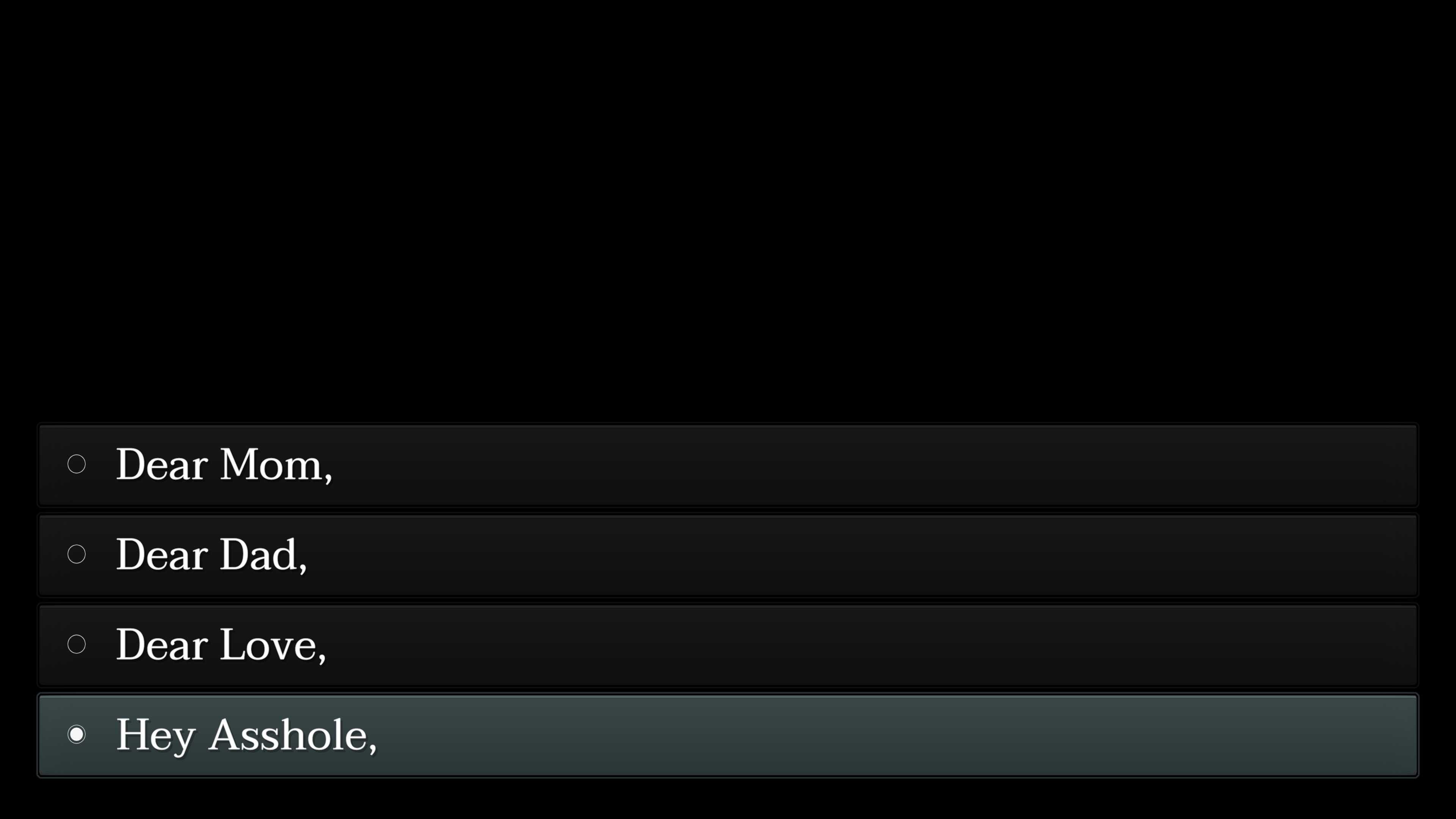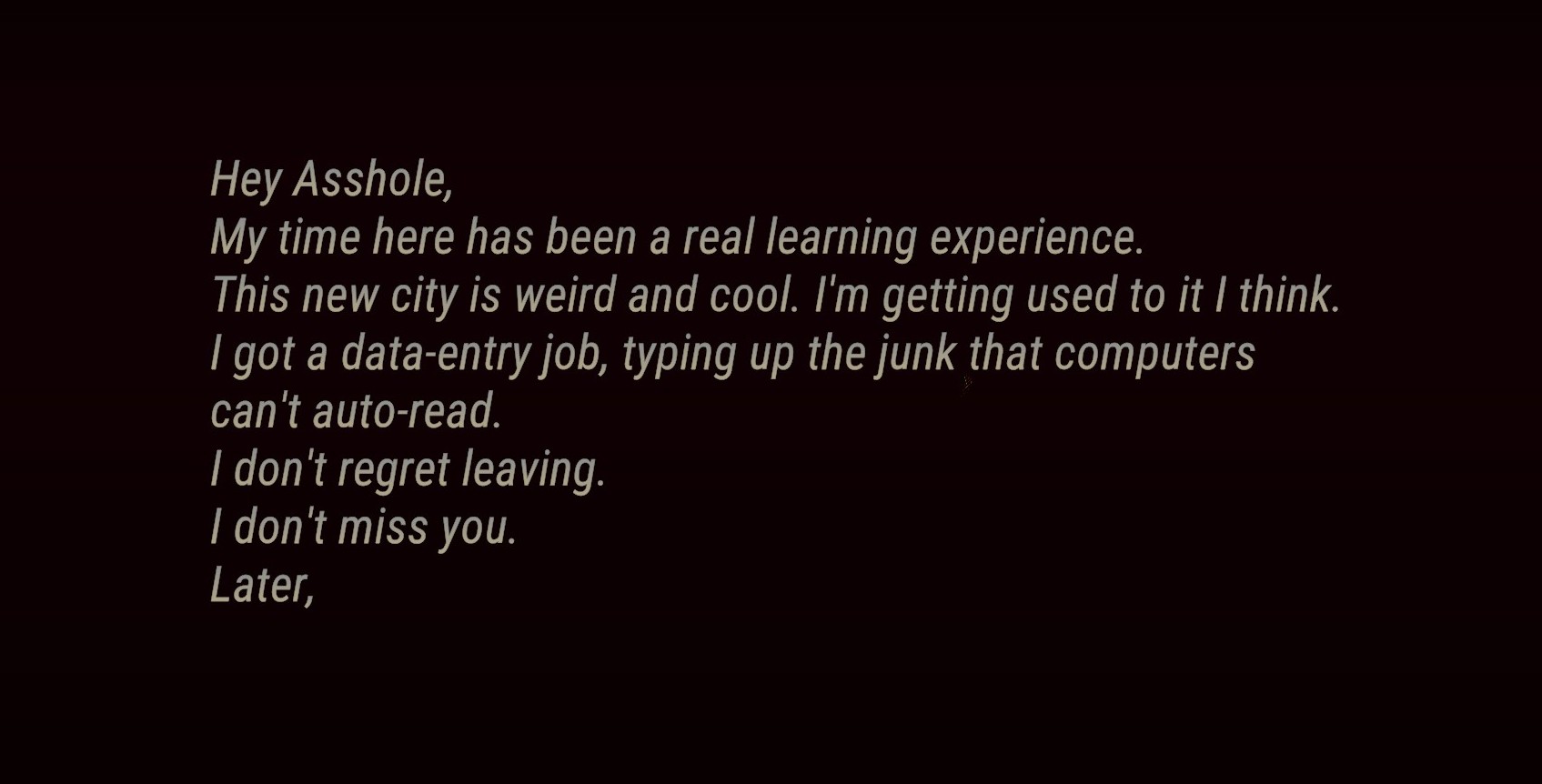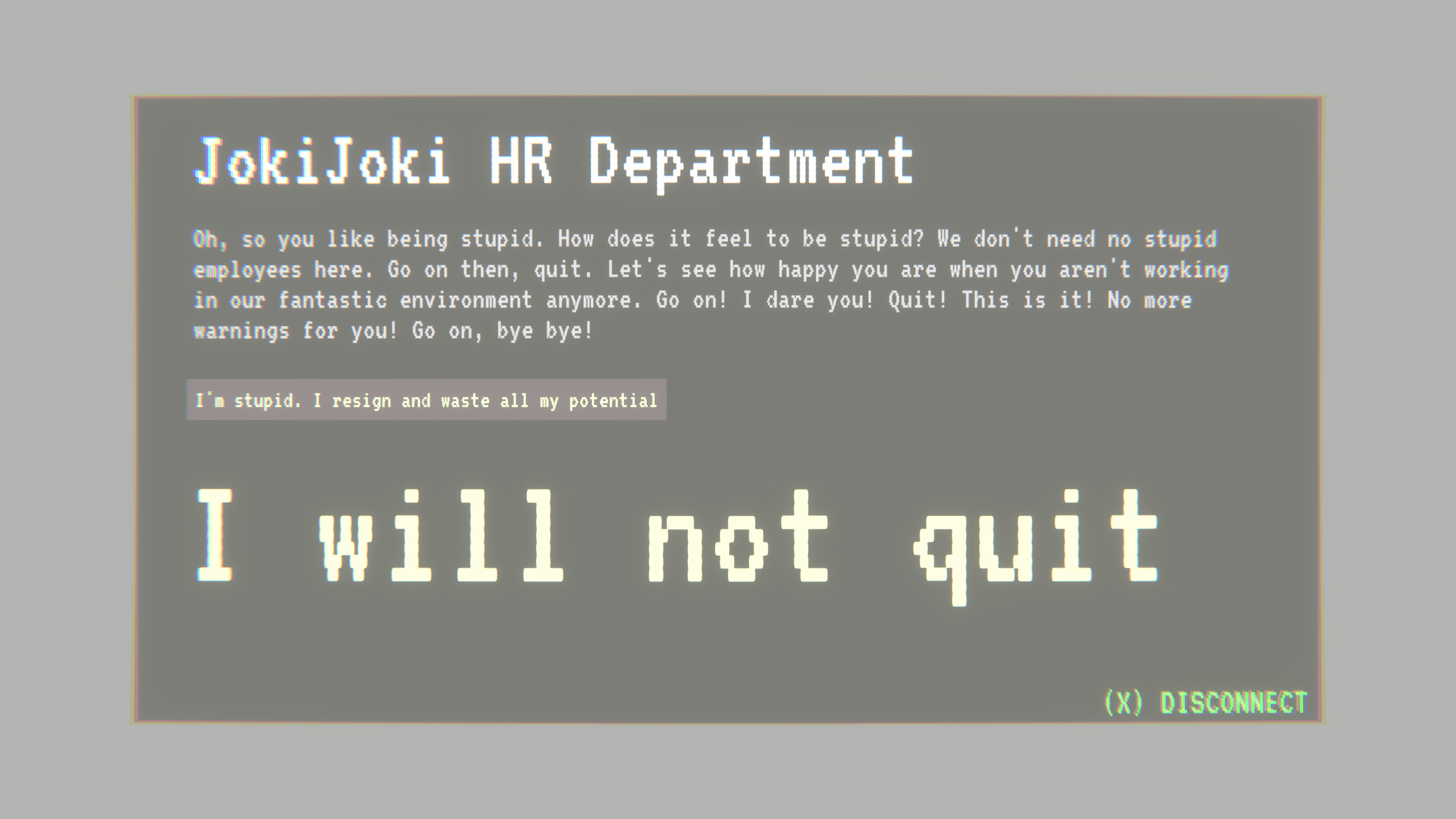
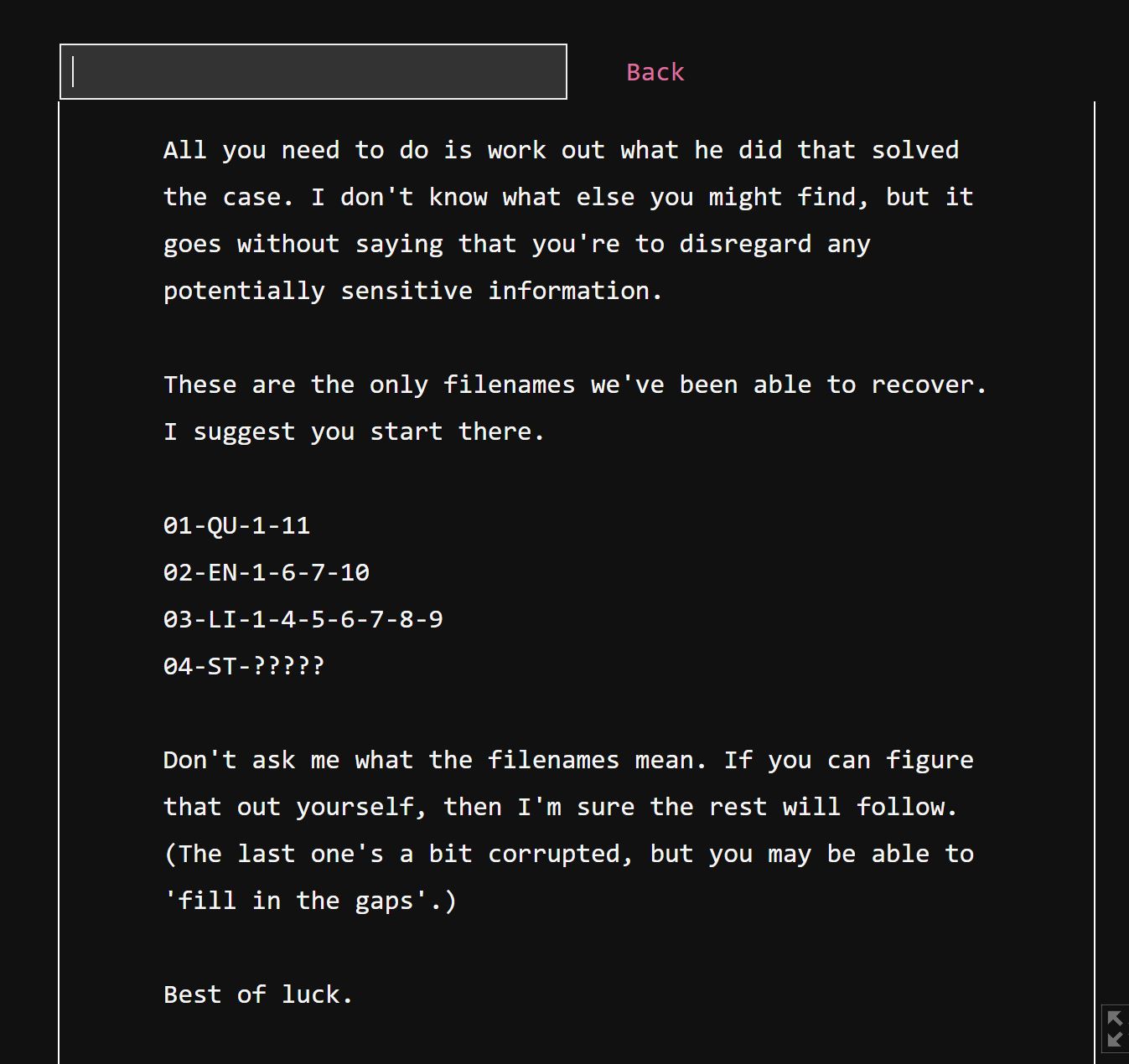
Type Help
What's your job?: Some manner of data investigator.
Responsibilities: A recently-deceased colleague left behind some old notes on an unsolved And Then There Were None-style murder, sealed for decades for unknown reasons. Plumb the depths of his ancient machine, read his files, and try to piece together what happened and why this case was sealed.
What's the problem?: Only a few files are initially accessible; your first job is to figure out the naming scheme so you can start access the rest (though this reveals further complications). The files also have additional encoding that must be sussed out from context; the computer system still has a few twists in wait; and even after all the tech problems, there's still the issue of: How and why did all these people die?
(Note: This is a freeware text adventure; there are no images and no audio. I didn't need them and found the game compelling without them, but just so you know.)
On one hand, Type Help has some compelling and smart gameplay, strong prose, and a really excellent twist in the middle to its And Then There Were None scenario where I intensely wanted to see what was going on. (The death on the bed is the most disturbing scene I've seen in a while - not through gore, as there is none, but just through sheer ideas.) On the other hand - um, there actually IS nothing going on. The game doesn't really have an ending; it just...stops. I know some folks are gonna say "ooooOOOOOoooooh it's more MYSTERIOUS that way," but this is an instance, to steal from Roger Ebert, where less is not more. Less is actually less. (Even the handwave we're given makes no sense; what was with the thunderclaps, then?) Type Help has some dynamite ideas, but they deserved a smarter, stronger follow-through, and they didn't get it. Given the weak denouement, I don't think Type Help is going to have quite the legs that Her Story, Return of the Obra Dinn, or The Roottrees Are Dead have.
Also: while I appreciate the dev letting you create and load from actual files you can save on your hard drive for his browser game, that has a bit of inherent diciness due to browser shenanigans (I had to futz with Vivaldi a bit after it glitched and wouldn't save an updated file). I know Roottrees took this release path successfully, but I wish devs would stop putting these lengthy mystery games on browser-based platforms. Just let me give you money in exchange for a reliable saving system and the luxury of not feeling like I have to solve the entire case in one sitting. (I literally just looked up the last thing because I was feeling a little nauseous after playing the game for 5 hours straight.) I want to savor your game, not feel like I have to speedrun it the first time through!
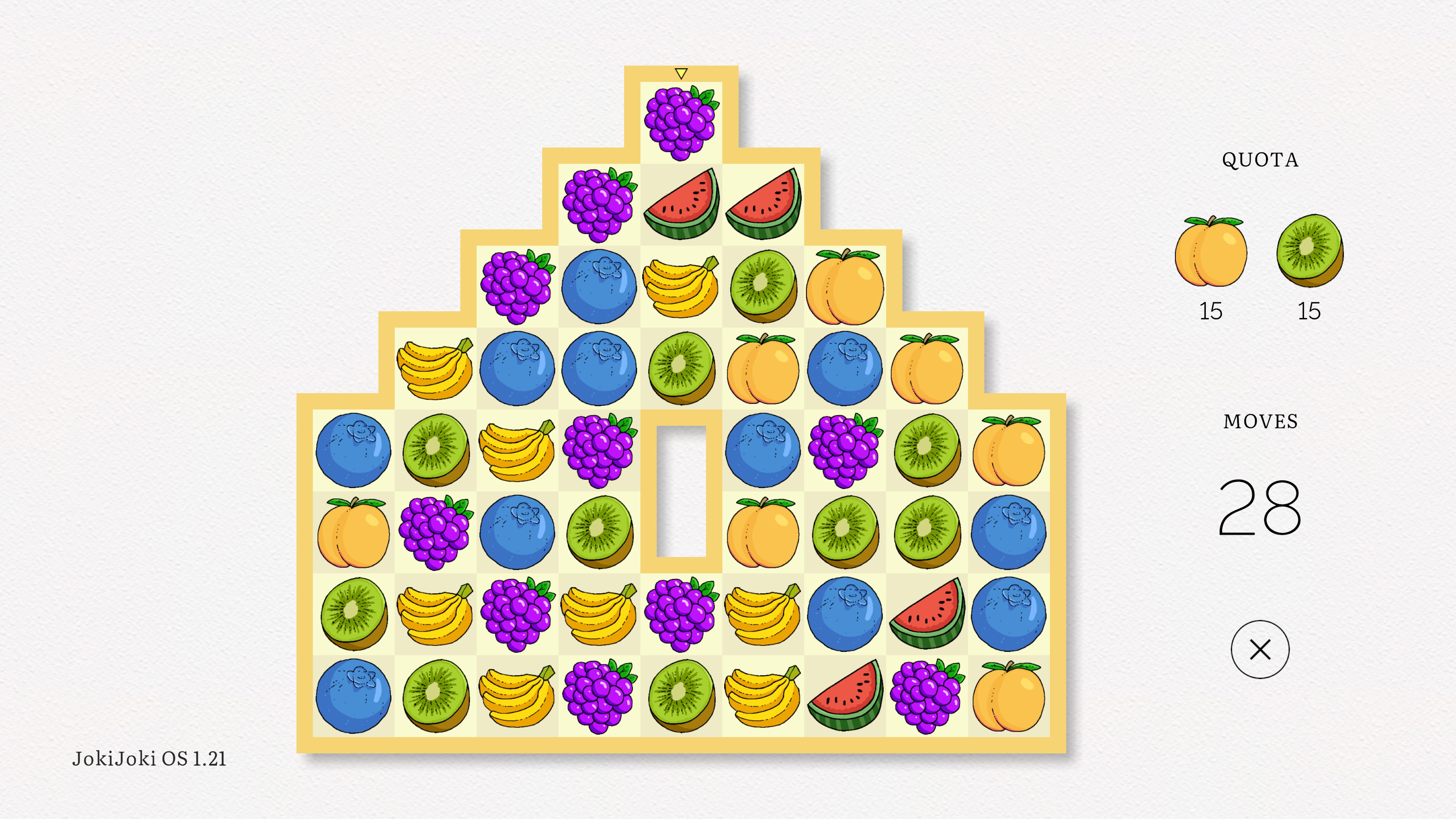
Day Repeat Day
What's your job?: Corporate drone in order fulfillment.
Responsibilities: Scheduling shipment of various deliveries through a Match-3 interface.
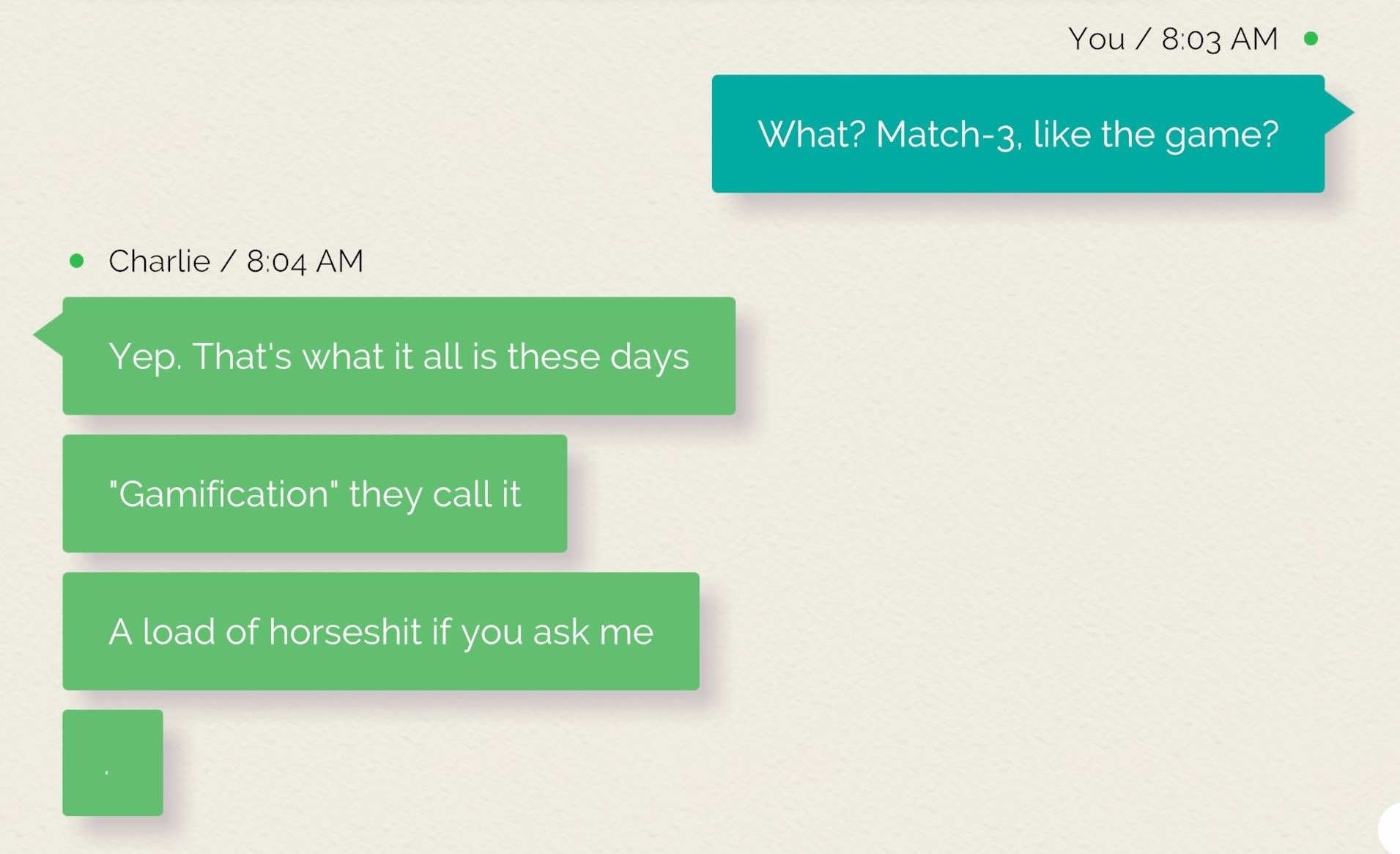
What's the problem?: You took this job because your art degree's not in high demand on the employment market, and you're questioning where, if anywhere, this prospective career path is gonna lead you. Also, this is partially a visual novel, and your brother's struggling with a drinking problem (well, it's more like you're struggling with it - he seems perfectly fine with just hitting you up for cash with increasing frequency), while your nominal ex-girlfriend seems invested in stringing you along while painting any attempts at boundary-setting as toxic behavior on your part. Furthermore, Sadako seems to be sending you curse videos drawn from '50s workplace documentaries in between levels.
The twists on Match-3 gameplay are good - limited moves, modes where you have to clear every starting tile on a given grid, or clear pieces closed off on the sides of the grid by maneuvering & setting off "clear column" or "clear row" pieces, etc. - and I understand they get better, but I think I'm more satisfied with the way my story turned out: I left the ex on read, arranged to meet a receptive coworker for coffee, turned down the brother's latest loan demand, and went to look for another job after my protag expressed the thought that he just couldn't do this anymore. It was - and I say this honestly, without sarcasm - a complete, satisfying interactive experience for me in the span of 43 minutes.
(If you need more out of a game: the price tag on sale's three bucks, and while it's another artistic work about how being a cog in the corporate gears dehumanizes you, I think the Match-3 gameplay and choices afforded by the visual novel elements deliver well enough. But I was honestly thought the ending I chose for the character was the most satisfying.)
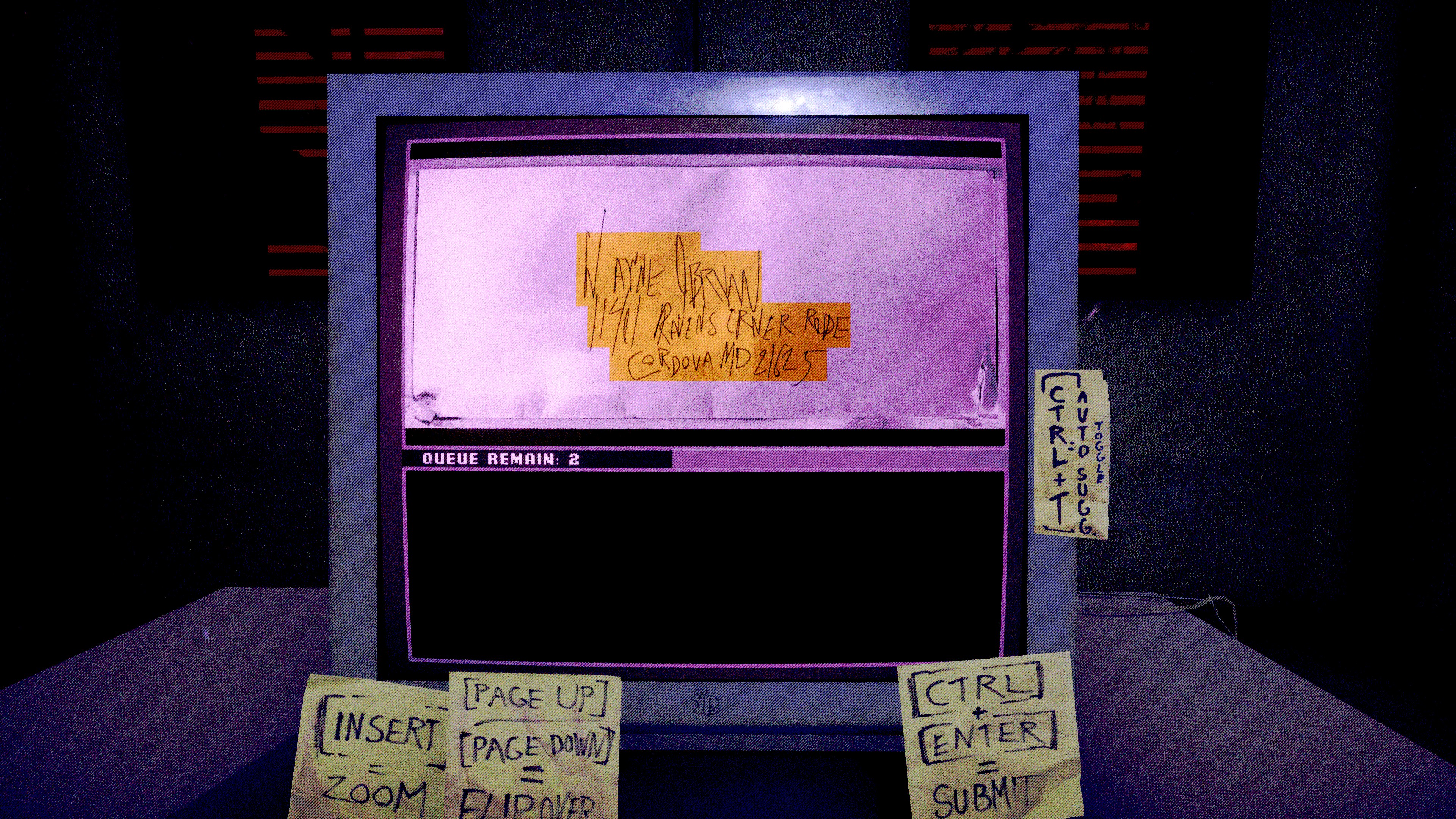
Dead Letter Dept.
What's your job?: "Data Conversion Operator."
Responsibilities: You type in handwritten or damaged addresses on mail the OCR can't make out.
What's the problem?: Your pay doesn't quite make apartment rent, even in Wisconsin (this is the rare Wisconsin-based title). Also, the mail seems to want to kill you.
You're here to see creepy mail, and the devs delivered. There is some excellent creepy mail in this title.
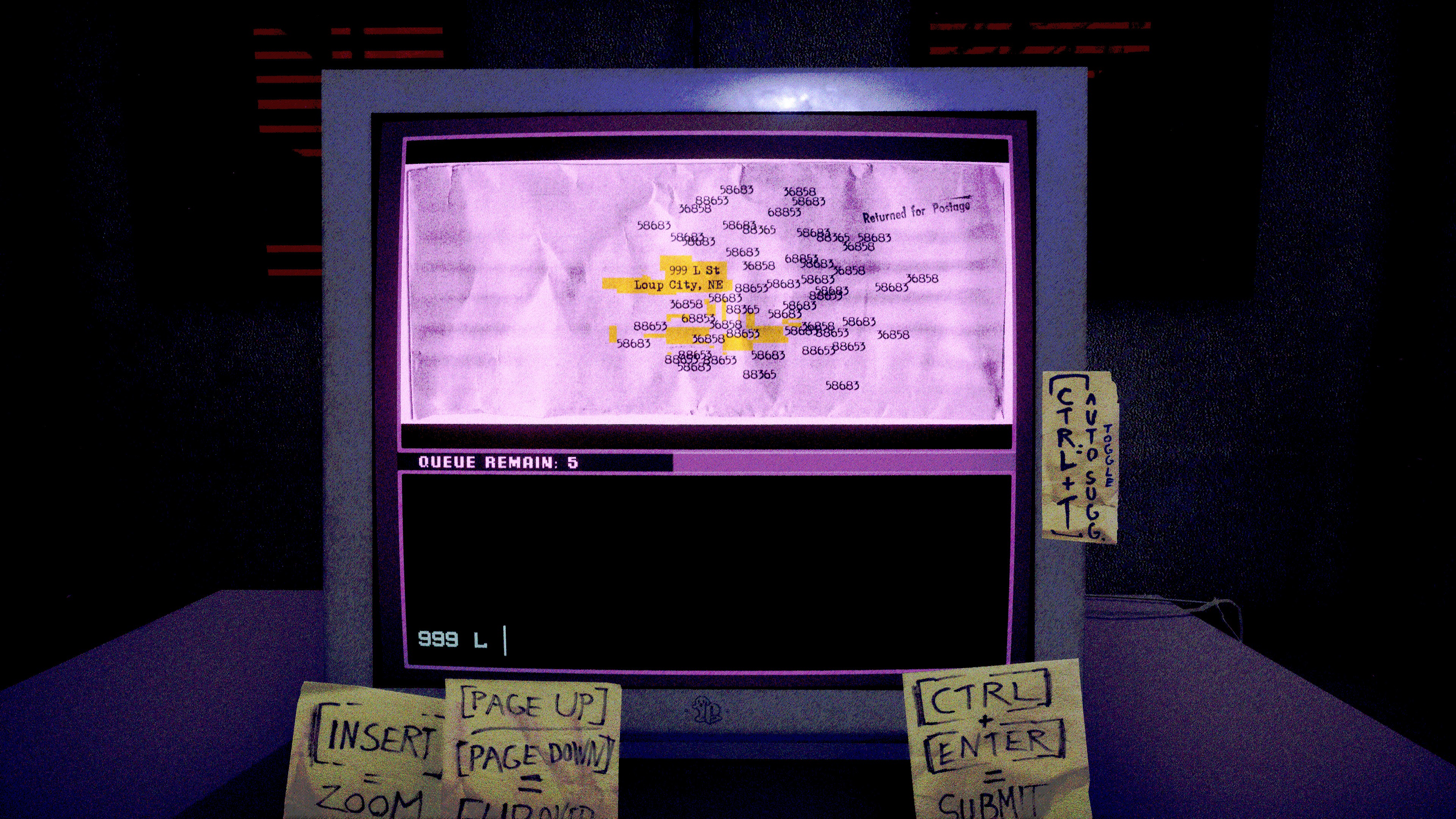
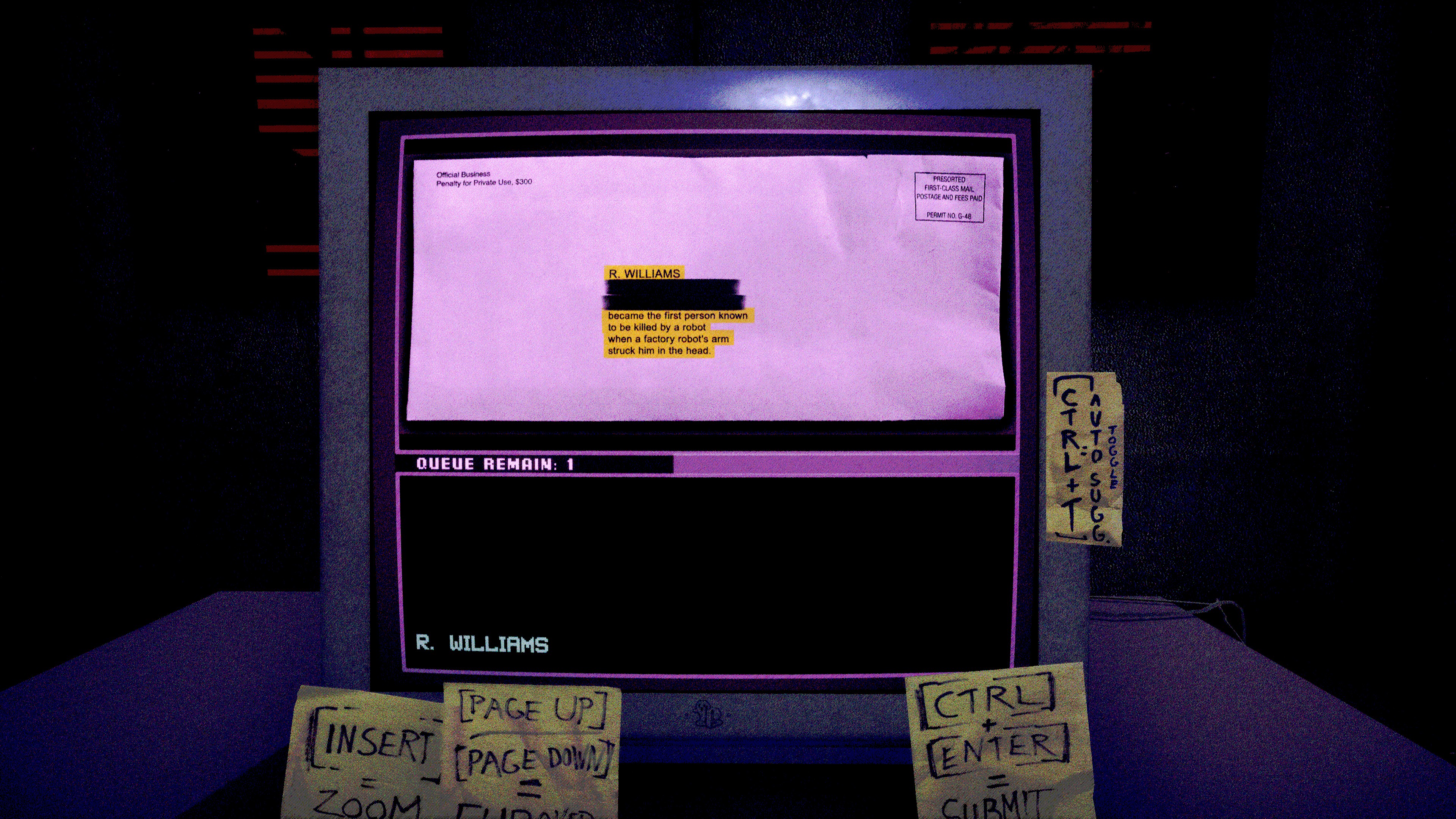
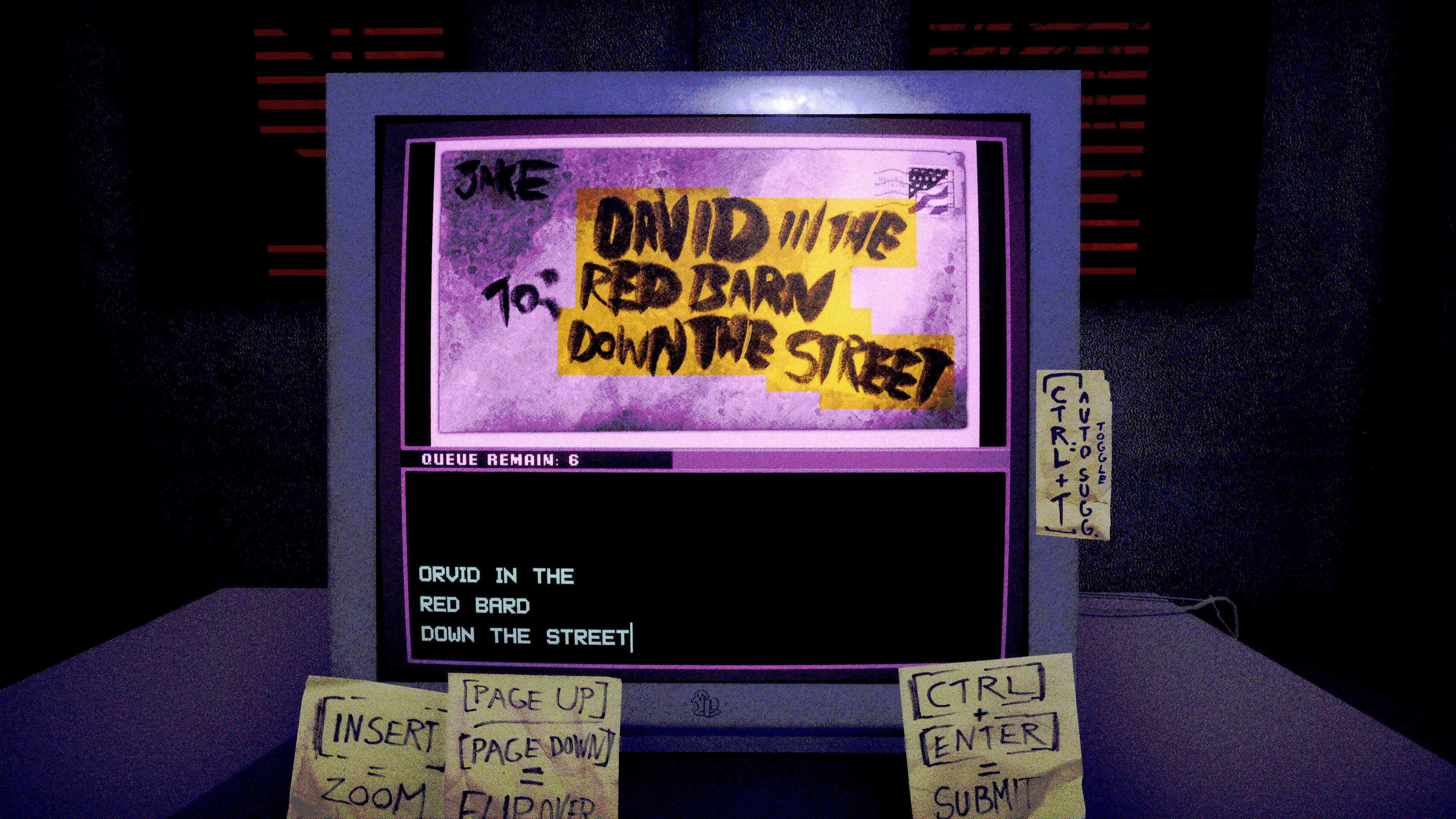
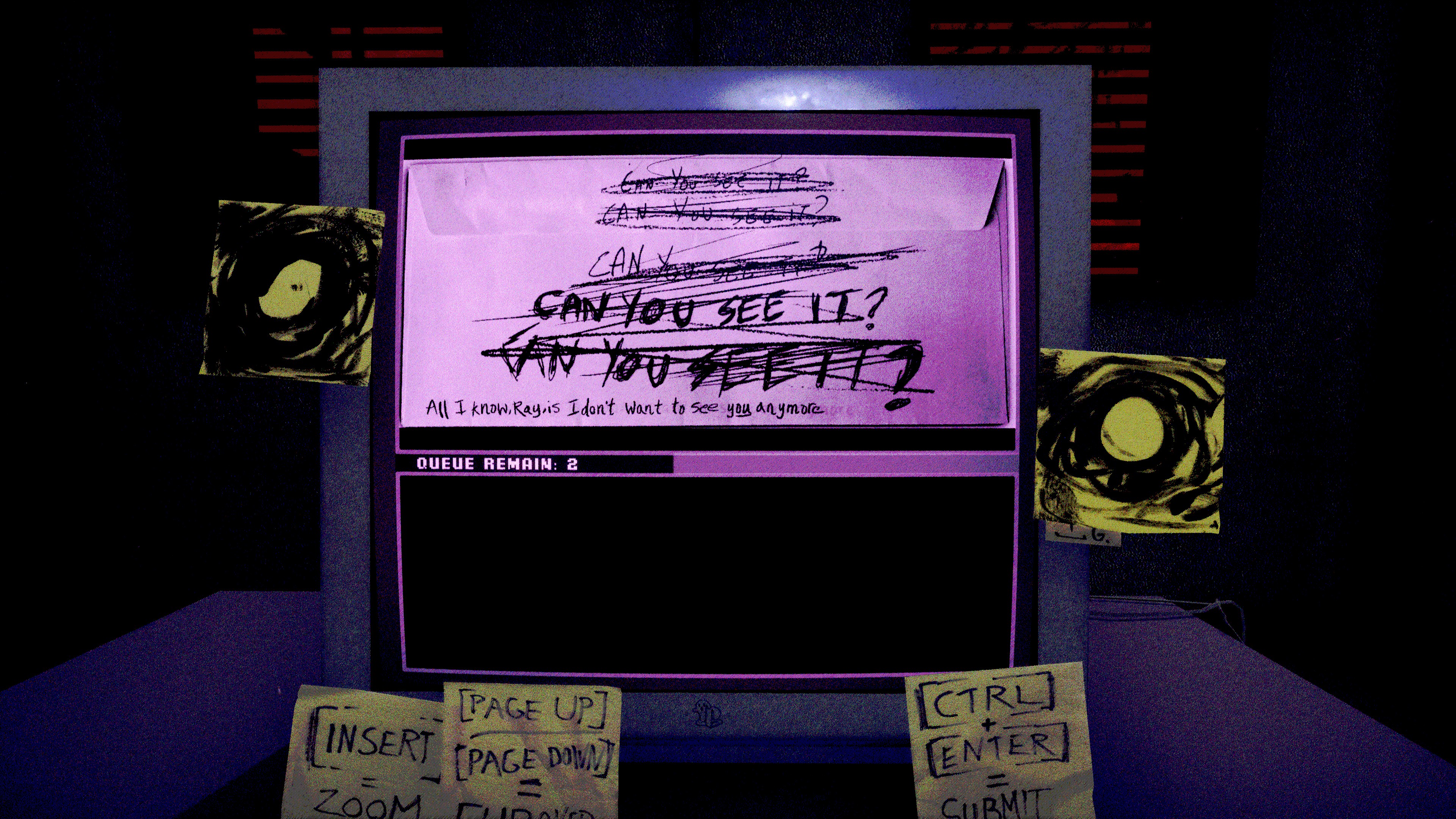
There are problems that get in the way of Creepy Mail Enjoyment, though. First, the devs have you spend a few minutes walking to your job each day, presumably to underline the hopelessness of the daily grind and bleakness of your shitty surroundings and employment sitch, but it's in practice just a tedious annoyance that gets between you and the USPS. I looked it up, and there are things you can do in your apartment to get different endings, but after the first walk, they should have just had you arrive at your job after exiting the apartment.
Second, you can save only once per run. A run supposedly takes about two hours, but it can be longer if you run into a few problem pieces of mail, and this is a game that can be physically taxing (see below). I assume this is meant to make you feel worn-down and compelled to work like the character, but I just found it a needless aggravation.
Third: The core of the game is making out hard-to-read handwriting and typing, and sometimes, the game approaches this by making text very blurry or very small. I can handle both individually, but both at once tends to give me eyestrain. I felt sick, and had to call my session, after attempting to type about 50 lines of light-colored tiny text that was printed sideways on one piece of mail. There's a "magnify" button, but it doesn't always help as much as you'd like.
(Note: The 50 lines of tiny text were a red herring, by the way. On pieces of mail where it seems you have to type in a ridiculous amount of text, there's always another, way shorter hidden message the game wants instead. The game is perfectly happy to encourage you to pursue those red herrings, though - there's no "ERROR: MAXIMUM NO. OF LINES EXCEEDED" message to let you know, hey, don't type all that in, we want something else, and the game is perfectly fine with putting you in physical discomfort elsewhere, so a trick like typing in 50 lines of barely-readable, sideways text wouldn't be beyond it.)
I know it sounds like I'm complaining, "hey, the addresses are hard to read in this game where addresses are supposed to be hard to read," but Dead Letter Office uses so many other tricks that don't rely on eyestrain to pull off its gimmick - extravagantly bad handwriting; blotched-out parts of the address where the info is available through other means; etc. The eyestrain traps seem to be inflicting physical discomfort for the sake of it.
This whole thing reminds me: We've made remarkable strides in accessibility in video games in recent years, but we seem to have overlooked that a good number of gamers have passed the threshold of middle age. The Final Fantasy Pixel Remasters, remakes of some of the most influential RPGs of all time, were released with a ridiculously, needlessly cramped, tiny, and hard-to-read font. The Lunar remasters were announced with a spidery font. Again, I understand "hard to read" is part of the bargain for Dead Letter Office, but, as the game itself demonstrates, there are plenty of "hard to read" options that don't inflict eyestrain. "Don't make things stupidly small and don't make stupid font choices" is an absurdly low bar, but it's too much to ask of some games, apparently. (Props to Strange Horticulture, discussed below, for noting the presence of small text and including a magnify function that makes a damn difference.)
The damnable thing: I am actually considering going back to the damn game, physical pain and all, for more creepy mail. Apparently, I can't pass low bars, either.
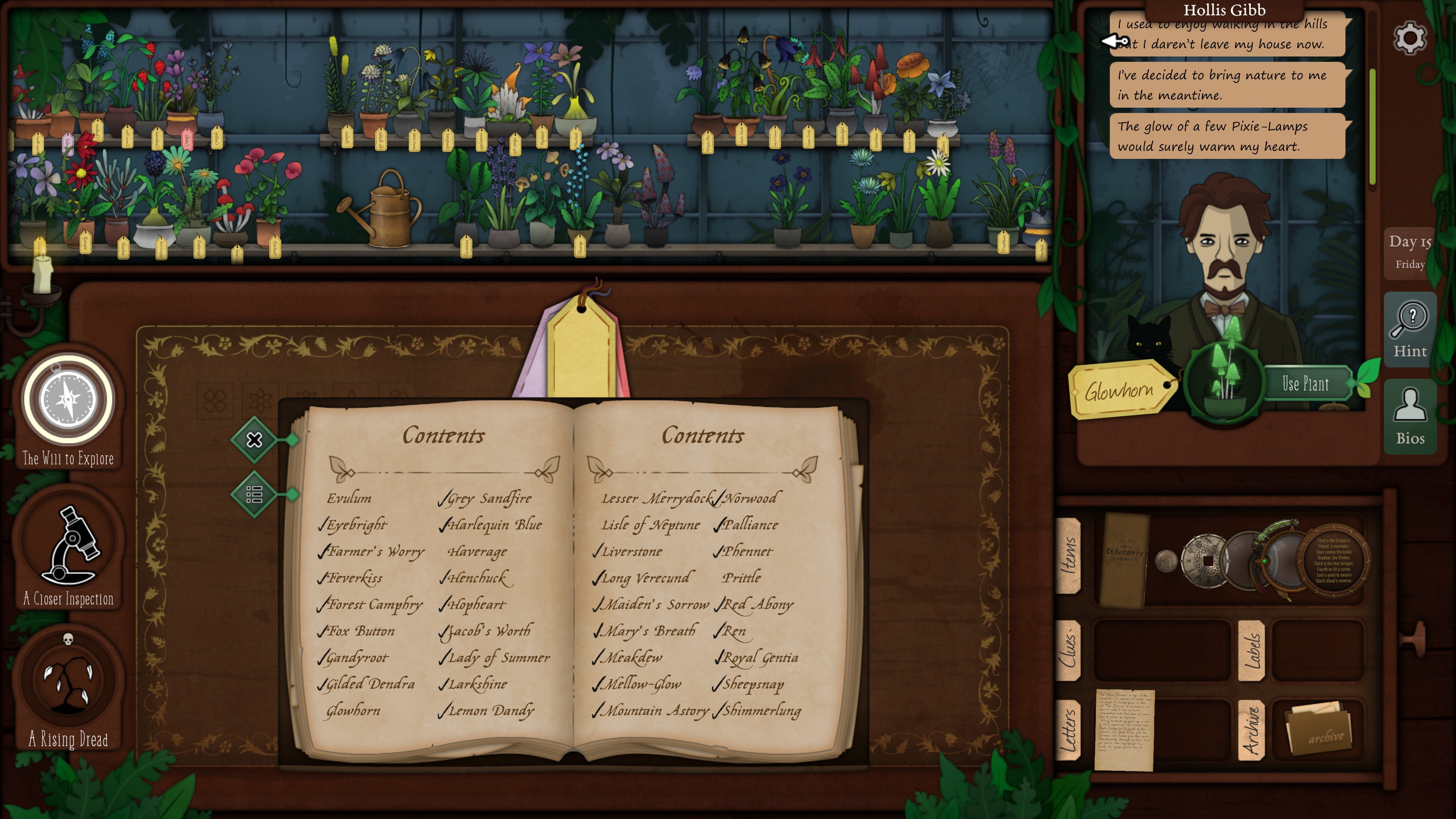
Strange Horticulture
What's your job?: Not computer-related! You're a horticulturalist.
Responsibilities: Providing the right botanical solutions to resolve your customers' many and varied problems. Uh, you've got a lot of plants, though, and it's not like any of them came with labels...
What's the problem? Besides the challenge of trying to ID dozens of rare & dangerous plants with Victorian-level info-distro tech, it seems the local druids have summoned a murder monster that wants to kill everyone. Fertilize your way out of that, fucker.
It didn't occur to me until another post called it out: this is a big-picture deduction-based game like Obra Dinn, Roottrees, etc. There's a loop of scrutinizing the physical characteristics of the plants in your greenhouse and what your character observes (scent, discharge, numbing/itching/etc. upon touch) to see which entry in your identification grimoire it most closely matches, then unlocking more grimoire pages and clues to new plant locations on your big ol' 500-grid square map of the environs by successfully fulfilling plant orders. You're a bit more on rails here than in the other games: the amount and range of info with which you have to deal at any given time is more limited, and your current objectives are more pointed. It's a more guided, less-freeform experience than the other titles, but it might appeal more to those seeking a more granular experience.
(If we're doing a power ranking, I'd put it: Obra Dinn -> Her Story - Roottrees (may move up a tier if you prefer a longer experience) -> Strange Horticulture -> power gap -> Type Help.)
There are a couple problems. If you mess up too many times, you're sent to a series of minigames to earn another "life," so to speak, but I seemed to get locked up in one, involving find the right key to fit a lock, that just would not progress no matter what I tried. I don't know whether it was ham-handedness on my part - I was pretty sure I had the right key; maybe I was mistaken - but nothing I tried would work, and every wrong choice would multiply the number of keys available, and I just couldn't get out of the death spiral. (It got my first playthrough into an unwinnable state, actually, and I abandoned the game for a couple years before picking it back up- recently.) My advice: if you get one wrong move away from "death" - it's the "A Rising Dread" meter in the lower-left with the wilted tree, which resets at the start of each day - don't take any actions of which you aren't certain: risking wrong plant IDs, going to unfamiliar portions of the map that might fill the meter, etc. You might wanna be cautious after even one hit to your meter, in fact. Treat "death" like permadeath. (I'm making death sound like a bigger threat than it is, but you can run into trouble if you don't know what that meter means and how it can fill up.)
The second is that a couple of the major decisions in the game had the opposite effect than I expected, as the intended target of the plant turned out to be unclear. On Day 10, the choice of plant always concerns the safety of your client. On Day 15, the intended recipient of the plant is the druid.
That said, I had fun returning to this game. The graphics are good at relaying the necessary info for IDs and make the plants look cool and interesting, the game has a minor dark Victorian fantasy vibe that serves to distinguish it, the gameplay loop is really fun, and it's just a pleasant time if you like plants. (The story's not spectacular, but it's serviceable.) Again, it's a more granular, guided experience than similar titles, and it's on the short side (about 5 to 6 hours), which sets it apart - not necessarily in a bad way. Give it a try if you like the deduction genre, as I suppose it can now be called.
